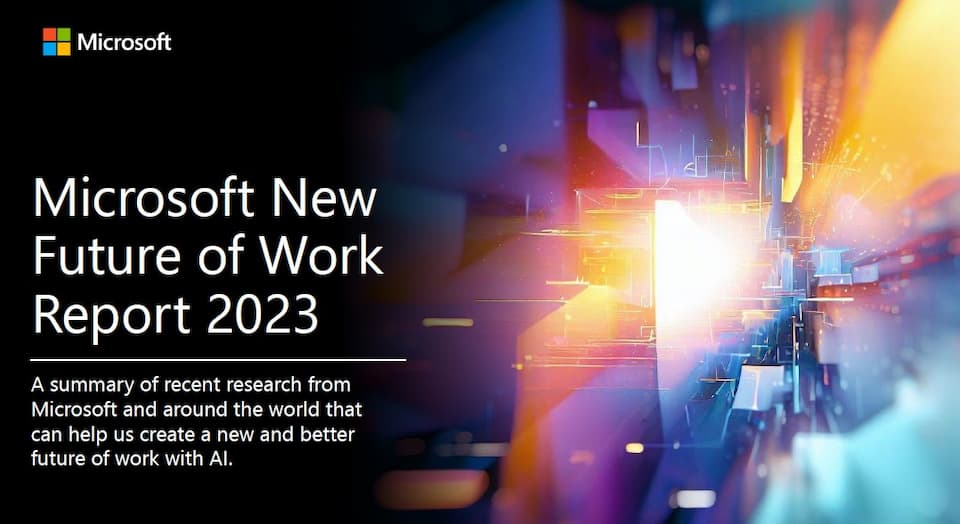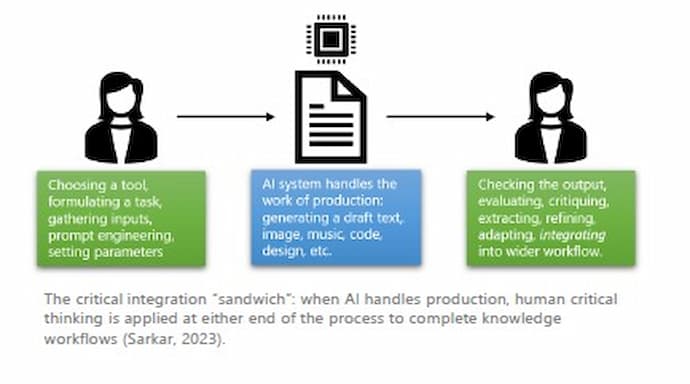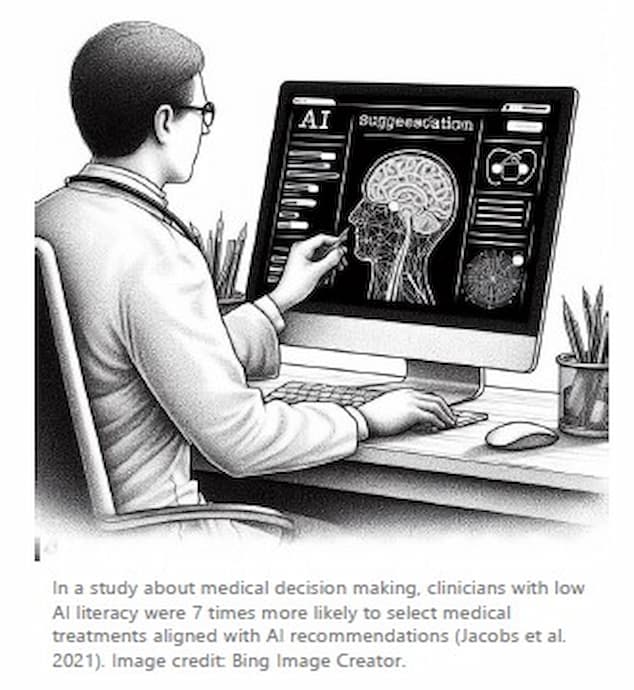New Future of Work - Microsoft Report On Impact of LLM and GenAI
A detailed report from Microsoft has looked at the impact of the LLMs (Large Language AI Models) and GenAI (Generative AI) on education and the workplace in the future. Although not Cambodia-specific, there are some general trends in the research that organisations in the Kingdom can take note of when implementing generative AI in their working environment.
The report which was released towards the end of 2023, looked at insights into why Artificial intelligence is helping workers deal with knowledge fragmentation, and how organisations can best utilise new technologies for the workplace and in personal lives.
Knowledge fragmentation is an issue for organisations as organisational knowledge is distributed across a variety of files, notes, emails, chat messages, and others. The report states it is a “summary of recent research from Microsoft and around the world that can help us create a new and better future of work with AI.”
The study was also made possible by their New Future of Work initiative which focuses on the most important technologies shaping how people work. There are other research papers, practical guides, reports and whitepapers on the New Future of Work initiative’s website.
A summary of the key points from the Microsoft New Future of Work Report 2023 are below.

How LLMs are Boosting Productivity in Information Work
The report reveals that lab studies and pilot programs have found LLMs like "Copilot" (Microsoft Copilot is a chatbot developed by Microsoft and was launched as Bing Chat - it is accessible in Cambodia) can substantially increase the speed and quality of common information work tasks.
However, although these tools can save time, and reduce the amount of effort, they do not necessarily improve the quality of output.
- The research showed that there were productivity gains of 25-75 per cent for tasks like writing, research, and decision-making.
- Although there may be peed increases, there may be instances where there are small quality tradeoffs but the overall evidence points to LLMs helping the least experienced workers the most. In essence, low-skilled workers benefitted from using GenAI the most.
- Prompting LLMs for specific contexts and giving guidance on managing tradeoffs can maximise benefits.
Several studies are cited in the report on the impacts of AI, but research by Goldman Sachs suggests that organisations in Developed Markets may have more tasks exposed to AI than in Emerging Markets.
Preparing For Human-AI Collaboration In The Workplace
As LLMs take on more complex work, the focus will shift to humans (us) critically integrating AI outputs.
- Developing skills like prompting, auditing results, and navigating uncertainty will be important.
- Complementary approaches, that view humans and AI as partners balancing each other's strengths, are the most promising.
- Monitoring AI performance and ensuring explainability will also be key to building appropriate reliance on new tools.
As AI is increasingly used to generate content, people will need to develop their analytical skills. This report suggests that “analysing and integrating may become more important skills than searching and creating.”

Domain-Specific Applications Are Emerging Rapidly
Early adoption and applications in fields like software engineering, medicine, education, and social science show promising signs but are not without their challenges to address.
- Performance varies by task, and integrating LLMs while preserving experts' workflows requires care.
- Continued learning from pilot programs will help refine applications and guidelines for different domains.
In education, where AI has become a global hot topic for the fear of plagiarising and "cheating: LLMs can serve as personalised coaches suggested the report. These tools also help to democratise access to education and provide students with 1-1 education, especially to those who normally would not afford it.
It should be noted that this report is based on using English as the language base, and many language families don’t have enough data for adequate training, so in Cambodia or in the region this is still a hurdle.
Shaping The Future Of Work Together
The future of work is unwritten (to borrow from Joe Strummer's famous quote). This depends on how organisations and individuals choose to develop and apply new technologies.
- By focusing on inclusion, addressing adoption barriers, and leading with scientific principles, AI could enhance work in equitable and productive ways.
- No single group can shape the future alone - through open collaboration and by remembering our shared control, positive change is within reach.
Dont Overrely On AI
One of the insightful aspects of the report dealt with the appropriate reliance on AI, which is stated "is a key challenge in human-AI interaction."
As AI has become such a buzzword in 2023 and into 2024, people often over-rely on AI. Research showed that overreliance can be caused by "familiarity with the task, AI literacy, automation bias, and confirmation bias" and that overreliance on AI can lead to poorer performance than either the human or the AI acting alone.

The New Future of Work - Microsoft Report On Impact of LLM and GenAI can be downloaded here.
How Big Is The AI Market And What Are The Forecasts?
A report in Forbes also outlined the size of the global artificial intelligence market, which was valued at USD $136.55 billion in 2022, but since the rapid growth in 2023, it is expected to result in exponential growth and increasing investments in AI technologies (as well as the substantial increase in value of tech companies leading the AI race).
Between 2023 and 2030, the market size is projected to expand at a compound annual growth rate (CAGR) of 37.3% and reach USD $1,811.8 billion by 2030! AI is expected to contribute USD $15.7 trillion to the global economy by 2030 (which is more than the current output of China and India combined).
Cambodia Financial Technology Development Policy 2023-2028
The Royal Government of Cambodia released the Cambodia Financial Technology Development Policy 2023-2028 in October 2023 and it forms part of the government’s transformation to achieve the “Cambodia Vision 2050”.
Embracing new technologies is very much part of this vision, as is the realisation the workforce needs to be ready to utilise the skills. Among the 12 measures listed in the policy to promote the use and development of ‘Enabling Technologies’ is the adoption and use of artificial intelligence (AI).